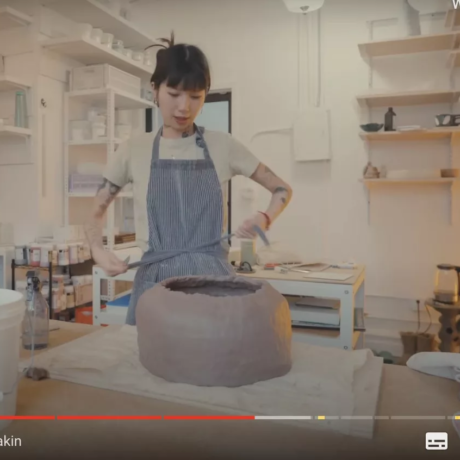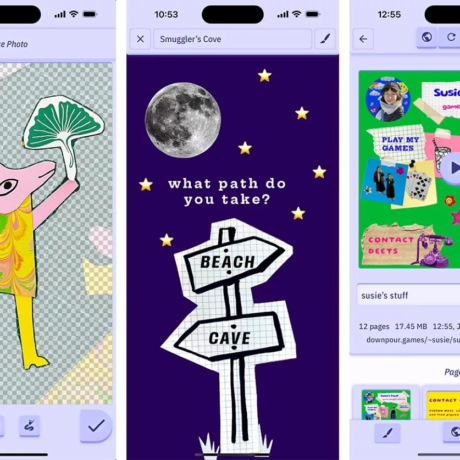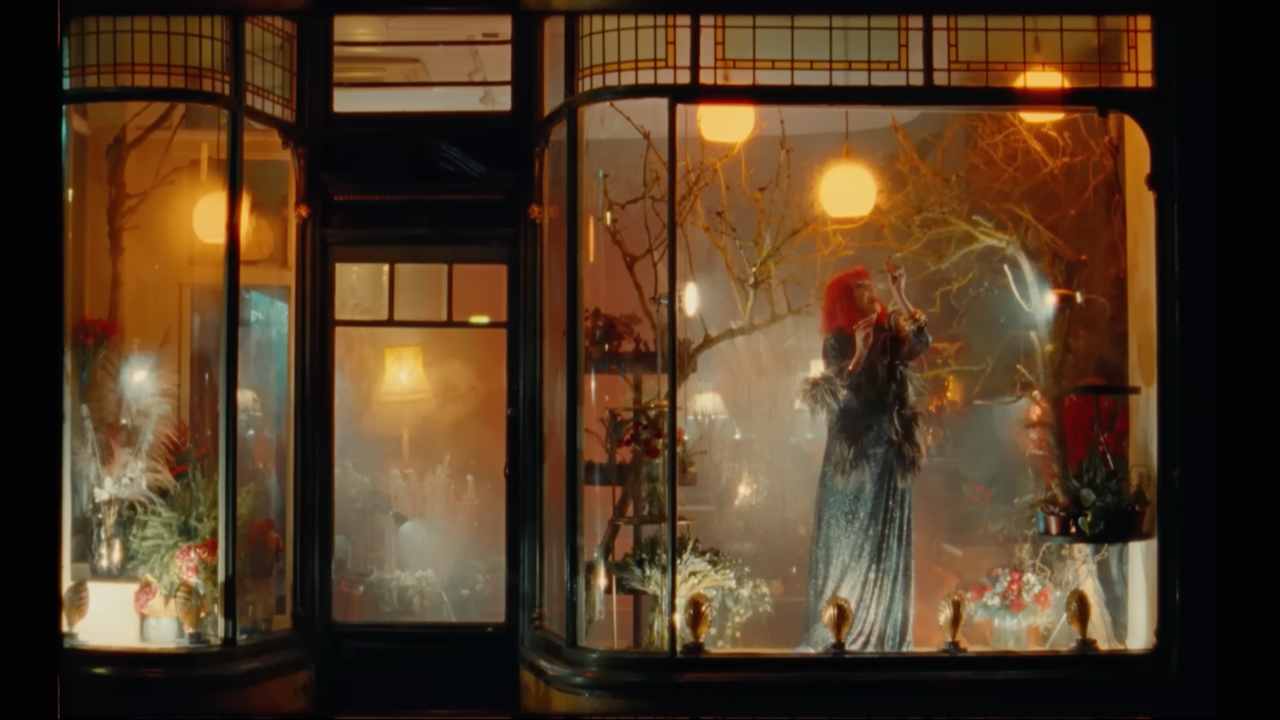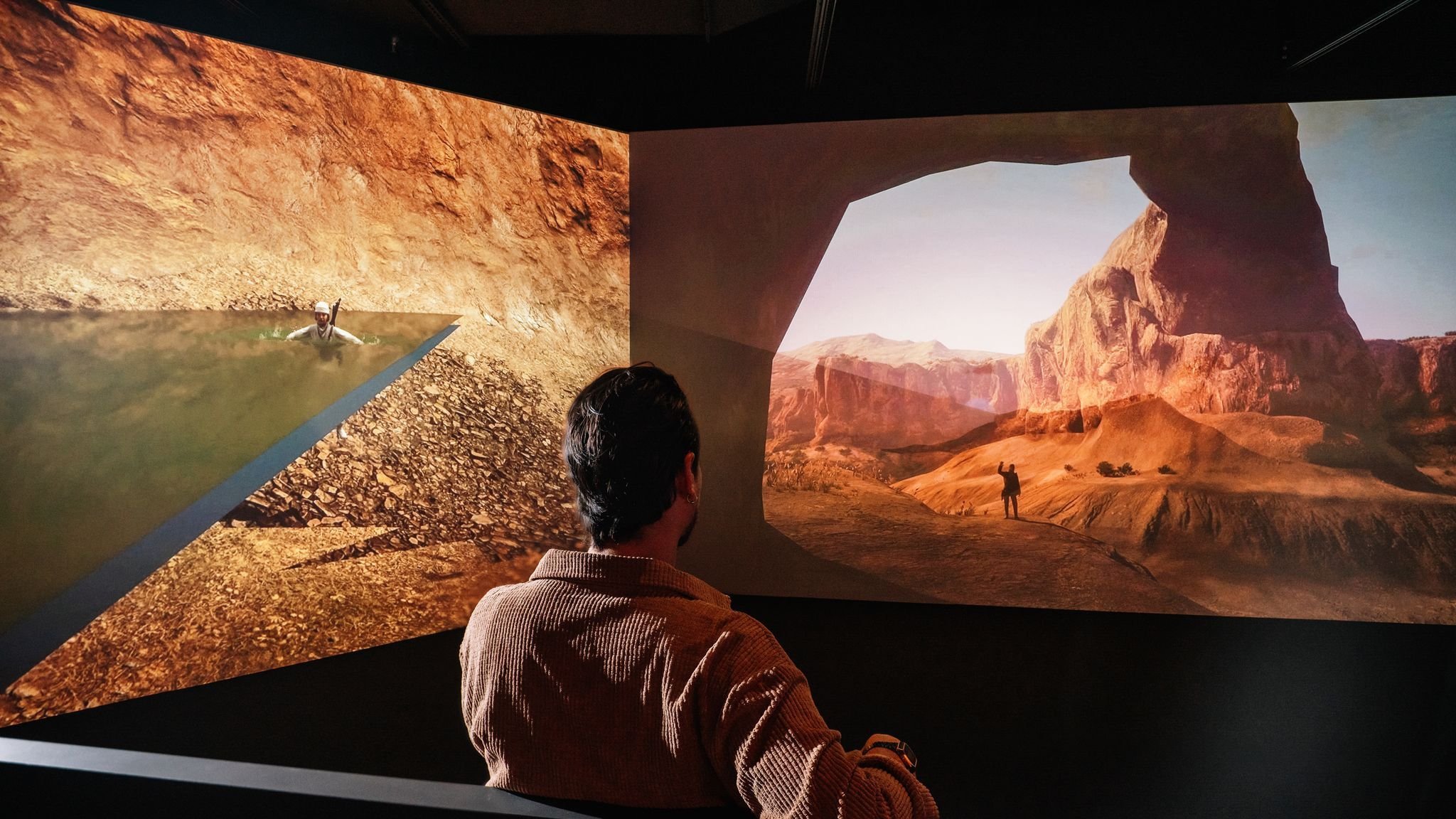
Every Wednesday evening, I kick my boyfriend out of the living room and play hours of Overwatch 2 online with my cousins. All of them are here in Liverpool, bar the lucky one who lives in Italy. But when we all log onto Overwatch — a first-person-shooter developed by Blizzard Entertainment — we are back in Nan’s, the place where this genetic relationship with play began. We have completely inherited this culture from our parents. Our Wednesdays were their Saturdays. They would kick us out of the kitchen, sit around the table and play poker, crash, chase the ace and blackjack for hours using a battered pack of cards. Whenever I got a peek inside, I remember small piles of one-pound coins sliding across the table like real treasures for adults. We mirrored them, getting stuck into hide-and-seek, Monopoly, Mario Party, wrestling, swing ball and Metal Gear Solid. We were never bored or lonely. Our parents showed us how to live.
Sometimes, I’m good at Overwatch. I get loads of kills and watch my damage tick up over the 10,000-point milestone. But mostly, I’m very bad. I actually forget we’re playing a game half the time. We get so busy gossiping about other family members or telling stories about the mad things that happen in our different jobs, and I think: yes, I enjoy Overwatch but I enjoy hanging out with my cousins more. It’s fine if we lose this match to the intense 10-year-olds we’ve probably been matched against because I still remember the rowdy sound of laughter coming from the kitchen when those card games were in full swing. The more laughing, the more losing, the better. Now, whenever I discover a friend plays Dungeons and Dragons with their cousins, or that boyfriend I kick out of the living room announces he is starting a new round of the online strategy game Diplomacy with six friends he never gets to see because they live in Glasgow and Greece — and God knows where I feel deeply happy for every single one of us.
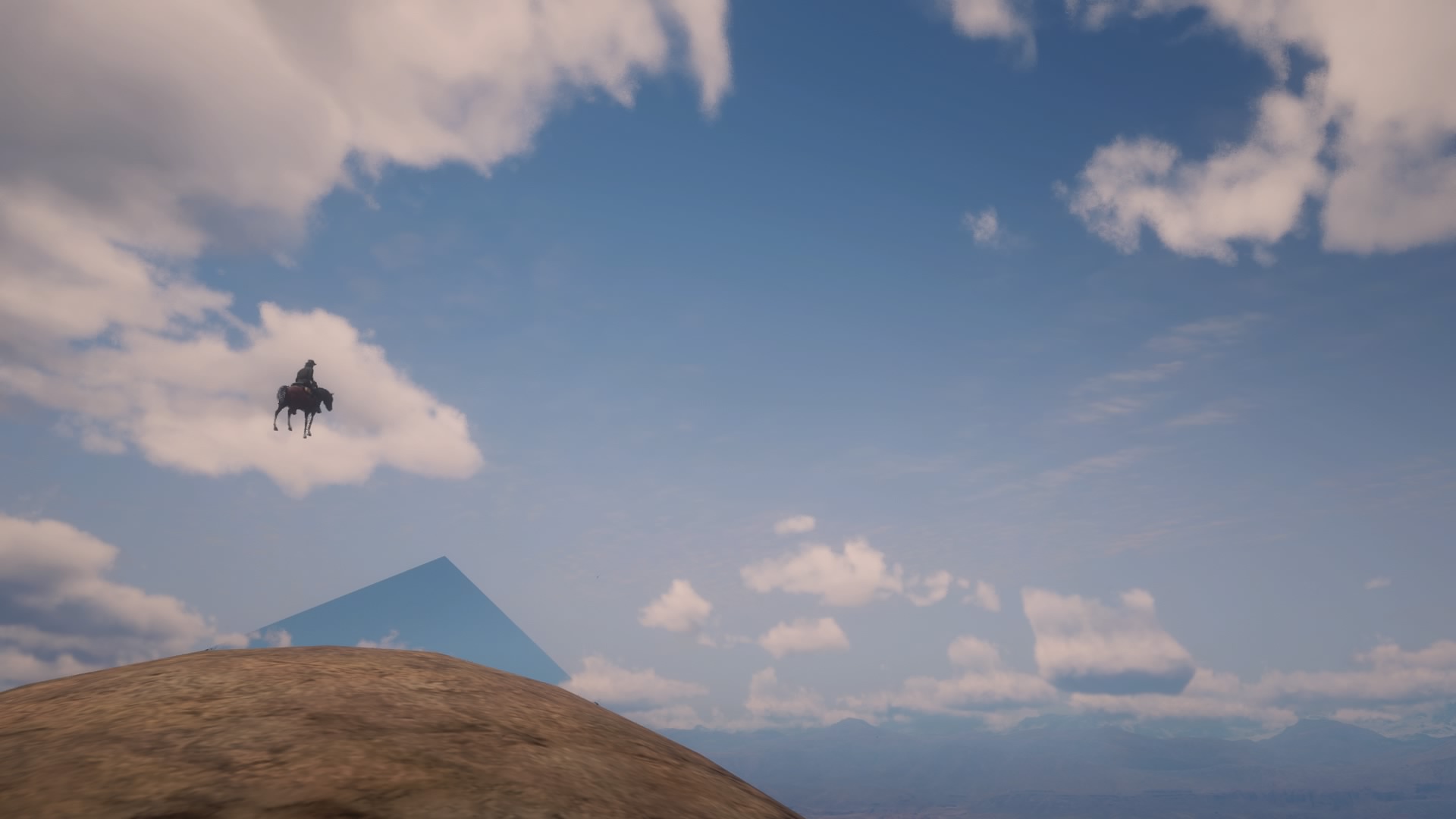
Contemporary adult life is boring and lonely. It’s also serious, dangerous and increasingly expensive. In place of laughter-filled card games in the kitchen of a busy family home, online multiplayer games have become my go-to counter-attack against everything that puts me at risk of losing my mind. These games are like sandbags keeping isolation at bay, and the effort goes beyond long Overwatch sessions. I am thinking about the Wordle group chats that persist, where a single-player game has created a network around itself through the nifty mechanic of sharing colourful score charts. I am thinking of the Scrabble dupe Words with Friends, where one round can stretch across time and space (and prompt my Mum to text me a simple ‘haha’ out of nowhere, gloating because she has won yet again). It is a relief to be a part of a community without having to leave the house, no matter how small or disparate that community is.
There is a film about one of these communities that I have been waiting years to see — a wait that is finally over now that the piece is online. Directed by Marie Foulston and edited by Luke Neher, The Grannies (2019) is a documentary that follows a group of Melbourne artists who customised their characters in the western-inspired Red Dead Online to look like cool cowboy nans. This is novel because older women hardly ever feature in video games, and when I watched it today on my laptop, I thought, that’s who I want to be when I grow up. I also felt that familiar happiness to learn about yet another group who come together under the premise of playing a game, but whose enjoyment maxes out through the act of playing the thing together.

The Grannies doesn’t document the posse’s existence and stop there. It is a record of a heist the group pulls, not against other players busy riding horses, hunting bears and cosplaying as bounty hunters. The Grannies pull a heist against the game itself, egging each other on to trespass the ‘open’ world’s designated boundaries until each of them slips into a surreal, broken version of Red Dead; one made up of low-res texture maps and floating seas glitching in the sky. Over footage of their game-breaking playtime, we hear an interview in which one granny says that because they are all artists, they can ‘articulate beauty to each other without being nervous about it.’ The film gently brings us into their adventure, shedding that nervousness so that we too can feel the awe The Grannies experienced when they explored sublime landscapes they weren’t ever supposed to see.
I love the closeness of their play, where teammates become confidants, and having friends around means that gameplay becomes a way of creating real memories. But I only play with my cousins on Wednesdays, and when they’re not around, I choose the real Wild West option to solo-queue into multiplayer games, hoping and praying I’ll be paired with nice, normal people. I was playing Respawn’s battle royale Apex Legends last week when a player on my team came on the mic to apologise for playing so badly. He was a bit drunk, he explained, and so was our third teammate, his wife. They were jumping all over the screen, laughing, emoting. I unmuted myself to chat with them and it was a bit like getting talking to a stranger at a bar. I had a laugh with them, the kind of laugh that shouldn’t make your day but does because it’s a whole interaction you were not expecting to have.
Of course, whenever I play these things alone, I run the risk of being matched with angry gamers. To be honest, it’s a risk I don’t mind. As much as I enjoy the cousins flanking me, and watching films like The Grannies, there is something to be said for accessing this kind of culture alone. Becoming chronically ill during an endless cost of living crisis, I’ve had to reckon with the fact I don’t have much access to third places anymore — that is, a place that isn’t the home or the workplace but a third environment. Somewhere I can get myself into quick-draw social situations like I used to do in cafés and galleries. The benefit of this, besides getting to practice being a human, is that you come into contact with people whose behaviour might not necessarily please you, and whose politics might not necessarily align with yours. These things are benefits because they enrich your sense of the world and the people in it. On the mic with a man in France who is shouting at me because I didn’t revive his character in time, I realise online multiplayer games have become my third place. They cannot always be pleasant.
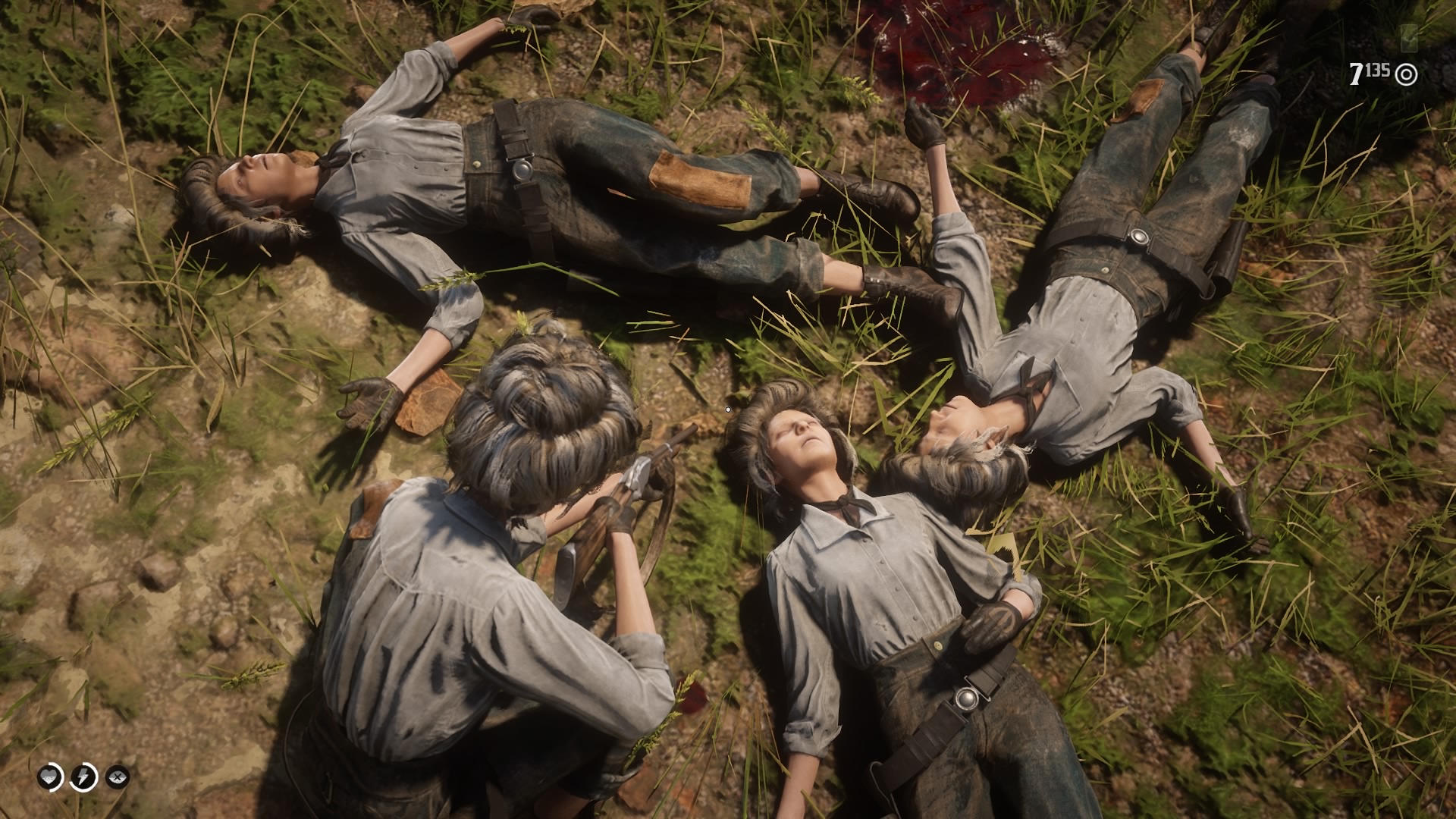
In 1975, the novelist and filmmaker Georges Perec published ‘An Attempt at Exhausting a Place in Paris,’ an account of the more obscure observations other people might miss. In 2017, Michael Crowe published ‘An Attempt at Exhausting a Place in GTA Online,’ in which the writer gave Grand Theft Auto the same writerly treatment. He sat his player character on a bench and noted the palm trees, passing comments of NPCs, cars, the snow that only falls in San Andreas on Christmas day, and the actions of the other players who don’t tend to sit on benches and write down every mundane thing they see. Someone lands a helicopter on the road in front of Crowe and waits to see if he gets inside. He doesn’t. Another player stabs him. In fact, he gets killed quite a few times. It’s a mixed bag. A virtual third place! He respawns and continues making notes, and the resulting book becomes an immanent reading of Grand Theft Auto’s world-building and the activity that goes on inside it like collateral damage to the writer. It’s great.
I mean, it’s not great that Crowe was murdered in broad daylight, and it doesn’t feel good when French men tell me to delete the game, but it’s not lonely or boring either. As much as I am interested in games, I’m more interested in the people that play them. What we play, who we play with, and why this is something we choose to do with our time. Online multiplayer games have given me a sense of community, good memories, and a touch of resilience. I suspect the perfect situation at the centre of that Venn diagram is experienced by people who play chess together in public parks… and try not to throttle each other.
Written by Gabrielle de la Puente
